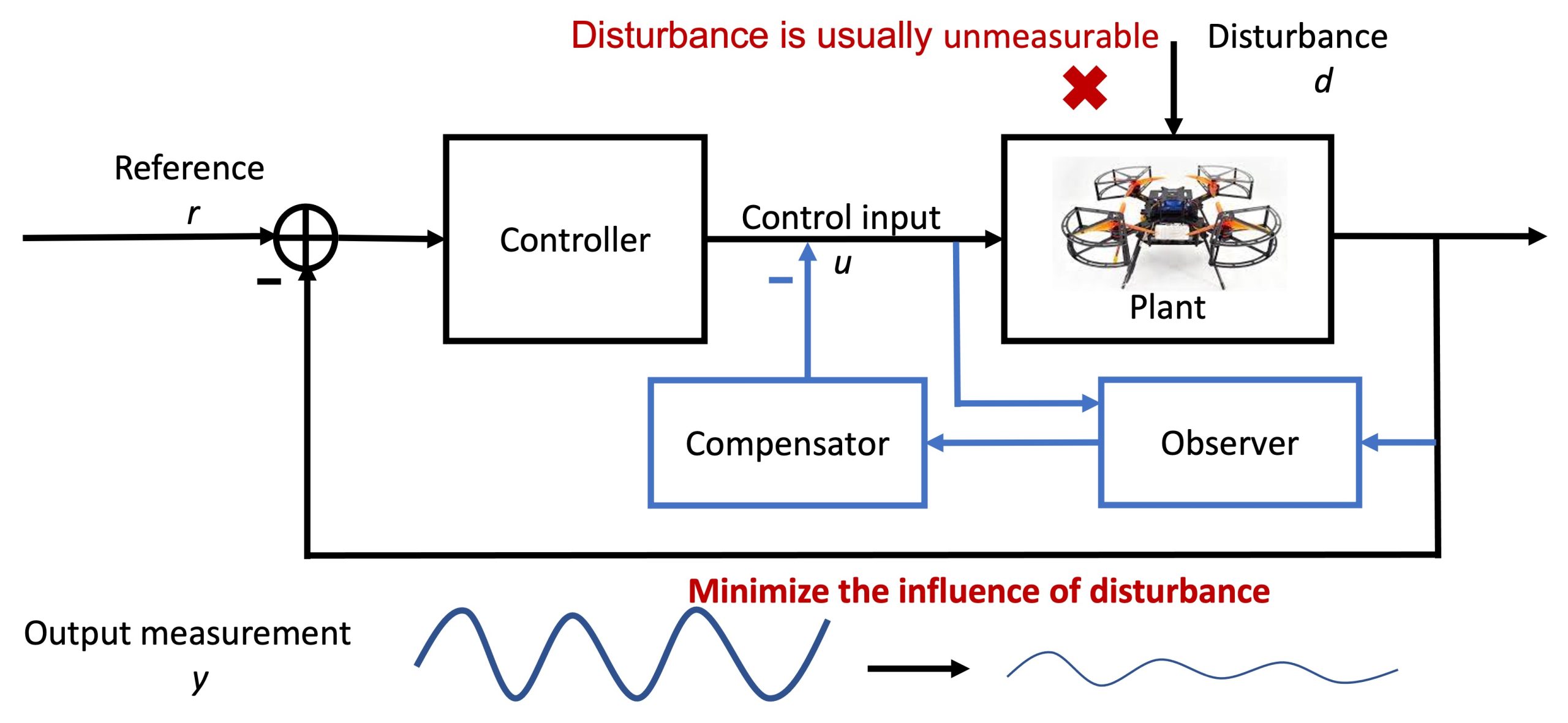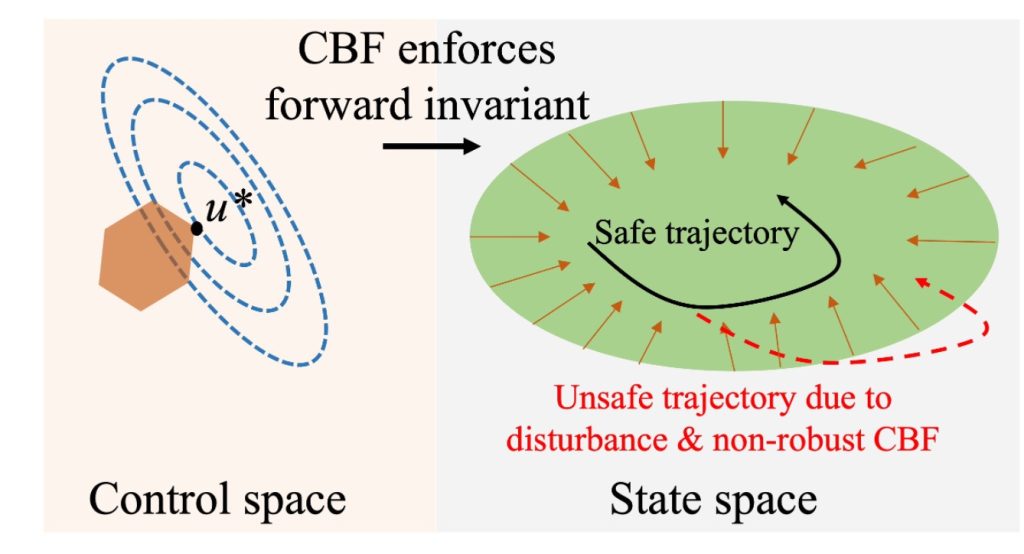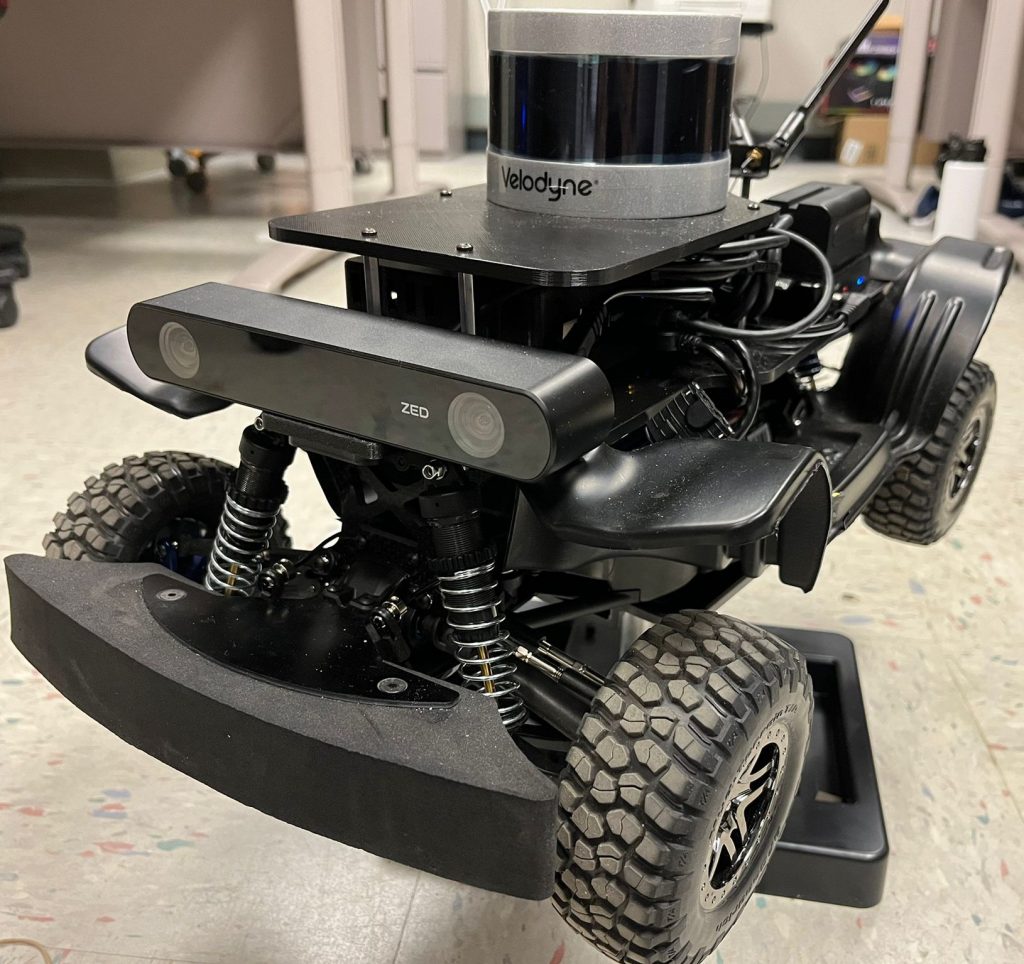
Disturbance Rejection Control
Disturbance rejection control focuses on estimating disturbances—typically unmeasurable—and minimizing their influence on the control output. This challenge lies at the core of modern control theory and design methodologies. Our research addresses several key questions: (1) What kind of disturbances can be estimated without bias? (2) What is the transient performance of disturbance estimation, e.g., is there any tight error bound? (3) How to design disturbance rejection controllers for both matched and mismatched disturbances? (4) How can practical observers and controllers be realized in complex linear/non-linear multiple-input and multiple-output (MIMO) systems?

Robust Safe Control
Robots are deployed in many safety-critical scenarios, such as human-robot interactions and on extremely expensive robot platforms themselves. Fundamental synthesis tools rooted in control theory are critical for designing provably safe controllers for conventional and (semi-)autonomous robotic systems. We focus on safety-guaranteed control solutions under various uncertainties.

High-performance Control of Agile Robots
Agile robots are systems capable of operating at their dynamic limits, such as autonomous racing cars, racing drones, etc. The most challenging aspect is that agile robots need to adapt rapidly to changing environments at high speed, which requires real-time, reliable, and high-performance components across the entire autonomy stack, including perception, planning, and control.
